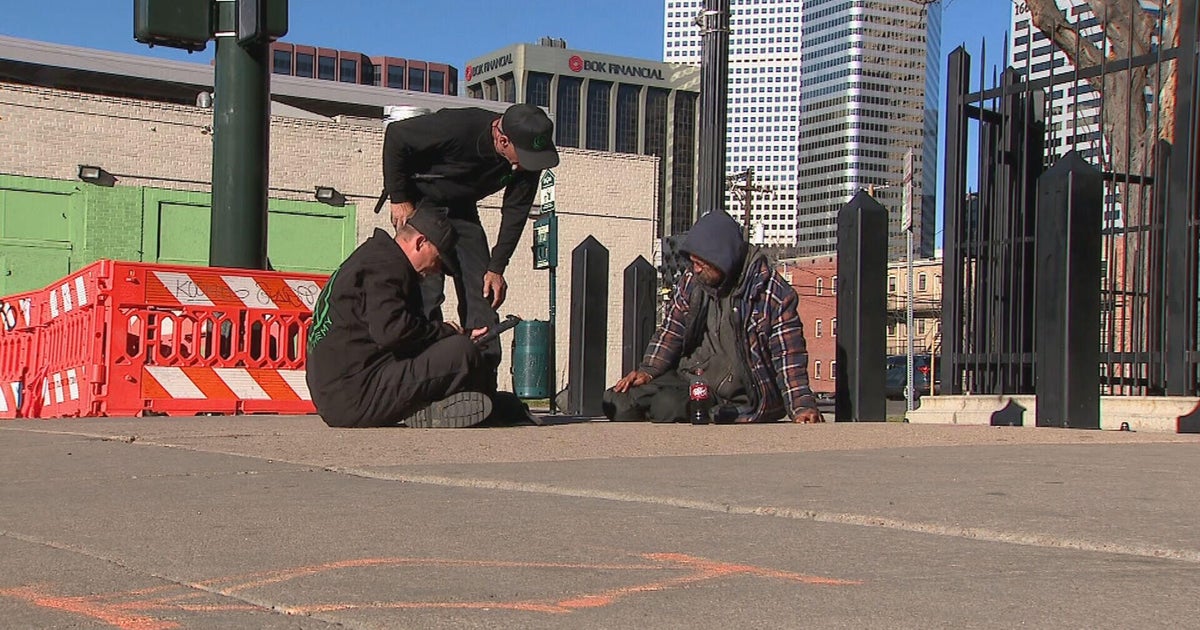Despite COVID-19 Pandemic, Hand Sanitizer Is Still Considered Contraband In Texas Prisons
TEXAS (CBSDFW.COM/CNN) - The Centers for Disease Control (CDC) and the World Health Organization (WHO) list it as one of the things most effective in the battle against COVID-19, but hand sanitizer is considered contraband at facilities that are often crowded, dirty, and lacking infection control -- Texas jails and prisons.
Hand sanitizer is considered contraband because of its high alcohol content. In the past, the alcohol has been separated from the gel to make a sort of "moonshine" or to start fires. Since the coronavirus outbreak the Texas prison system has started selling non alcohol-based sanitizer in the commissary -- even though the CDC recommends using sanitizer with at least 60% alcohol by volume to kill the virus that causes COVID-19.
Even as correctional facilities have emerged as some of the country's largest sources of coronavirus outbreaks, hand sanitizer is still considered contraband in all federal prisons as well as state prisons in more than a dozen states, a CNN review of department policies found.
But during the pandemic, the CDC has recommended that correctional facilities "consider relaxing restrictions" on alcohol-based sanitizer "where security concerns allow." A CDC spokesperson said that the extent to which the rules could be relaxed "will depend on the security level of the facility and other aspects of the operational environment."
Many states have followed the advice: At least 30 corrections departments are allowing inmates to use alcohol-based hand sanitizer, either letting prisoners have their own bottles or dispensing it to them in a more controlled method. Most had banned the substance before the pandemic broke out.
But 17 state corrections departments -- including six of the 10 with the largest inmate populations -- said they were maintaining their bans for now, many arguing that the alcohol in sanitizer made it a safety risk. And inmates in federal prisons around the country are also prohibited from using hand sanitizer, the federal Bureau of Prisons said in a statement.
Many of the prison systems that ban sanitizer, which include Texas, Florida, Pennsylvania, Arizona and Georgia, said they are providing inmates free soap and other toiletries and reminding them about the importance of washing their hands frequently.
The restrictions on sanitizer remain in place even as the virus has spread like wildfire through prisons around the country. With inmates packed into crowded, often unsanitary housing units, and access to medical treatment limited, correctional facilities are becoming deadly hotspots, experts say.
As of last week, more than 14,500 inmates around the country had tested positive for COVID-19 and at least 218 had died of the disease, according to a count by The Marshall Project, a nonprofit news website. Several thousand prison staffers have also tested positive and more than a dozen have died, the tally found.
Many of the states that have relaxed their policies have opted for compromise solutions where inmates only have controlled access to alcohol-based sanitizer. Last month, Nevada corrections officers provided some offenders bottles of sanitizer on a trial basis, "but within a few hours, two offenders drank their hand sanitizer and got sick," department of corrections spokesman Scott Kelley said. "NDOC had to confiscate all of the bottles."
Now, staffers carry around one-gallon bottles of hand sanitizer, Kelley said, and "provide offenders two to three squirts, under supervision."
Making Sanitizer But Banned From Using It
As sanitizer has flown off store shelves in the newly germophobic world beyond prison walls, some state leaders have turned to inmates for help dealing with potential shortages.
New York Gov. Andrew Cuomo has touted his new "New York State Clean"-branded sanitizer bottled by prisoners, unveiling stacks of jugs from behind a curtain at one of his daily press conferences in March. But after activists pointed out that the inmates who made the gel weren't allowed to use it, the state's corrections department said it would make the sanitizer available in prison common areas.
Some Texas inmates have also been working to repackage hand sanitizer, and Maryland inmates are helping bottle sanitizer, spokespeople said, even though both states ban prisoners from using the substance. Both states said they were providing inmates with soap.
David Fathi, the director of the ACLU's National Prison Project, called the sanitizer bans an "exceedingly unfortunate" example of prison leadership "fixating on the minor risks at the expense of paying attention to much more significant risks."
"If prisoners can be around gallons of hand sanitizer when they're making it, why can't they have a little tiny bottle in their cell for personal use?" he asked. "We should be doing everything in our power to slow the spread of the virus."
Soap May Not Be Enough, Experts Say
Several of the corrections agencies that ban inmates from using sanitizer point out that the CDC recommends washing hands with soap and water as the best way to kill the virus. Some of the states with the largest inmate populations, such as Texas, Florida and Pennsylvania, say that the free soap and other toiletries they're providing inmates go far enough.
Still, experts and advocates for inmates' rights said they worried that soap isn't enough in all prisons. Venters, the former Rikers Island medical chief, noted that sinks in some correctional facilities are often broken or limit the amount of water they let out at a time, making it difficult for inmates to scrub their hands for the recommended 20 seconds.
Venters warned that outbreaks could have a big impact outside prison walls, potentially overwhelming smaller hospitals near remote prisons and putting correctional staff and their families at risk. "Slowing the infection behind bars both saves lives inside the prison and flattens the curve outside for the community," he said.
Patchwork Of Restrictions
Some inmates have turned to the courts for help improving hygiene in their facilities. Two elderly Texas inmates sued their state prisons department in March, asking for hand sanitizer, face masks and more soap and paper towels, along with stepped-up social distancing practices. In the lawsuit, the inmates' lawyers called COVID-19 a "ticking time bomb" for the state prison system.
But while a federal district court judge ruled in their favor, the Fifth Circuit Court of Appeals last month temporarily blocked his order from going into effect. The state government had argued that it was doing enough to address the threat of the disease in its prisons.
For now, inmates face a patchwork of rules on hand sanitizer use from state to state.
(© Copyright 2020 CBS Broadcasting Inc. All Rights Reserved. The CNN Wire™ & © 2020 Cable News Network, Inc., a Time Warner Company contributed to this report.)







